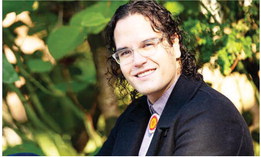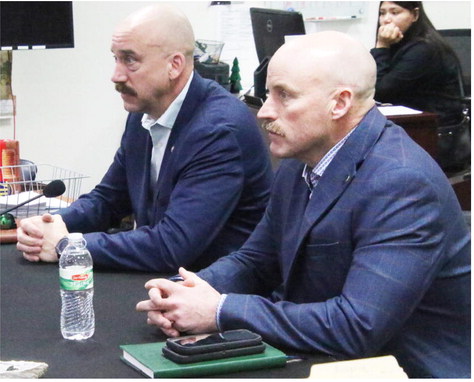Montana Wilson Raises The Bar


When Montana Wilson was just 7 years old, his grandfather took him to witness history: the swearing in of the Fort Peck Indian Reservation’s first police chief for its newly established tribal police force.
Watching alongside his grandfather, a dedicated member of the reservation’s tribal council who held various positions for nearly a quarter of a century, Wilson was quietly learning about government, nation building and pride in the reservation’s sovereignty.
“I grew up seeing all kinds of stuff happen first-hand in our tribe and knew what it was like to disband and build a nation,” Wilson said. “My grandfather was really inspiring and wanted to show me that what we want to do as Indian people, we can achieve.”
This early lesson in government inspired Wilson toward a life defined by education and helping others through his career in politics and law.
The Poplar native and Montana State University graduate is an enrolled member of the Gros Ventre tribe of the Fort Belknap Indian Community and a member of the Assiniboine and Sioux tribes of the Fort Peck Indian Reservation.
Wilson now attends the University of Montana, pursuing both a master’s degree in public administration and a law degree. Those in Wilson’s corner have long known he was on track for greatness and for making a difference on a large scale.
“He is a brilliant man, and more than that, he’s one of those rare individuals who understands our lives are part of a continuum,” said Ilse-Mari Lee, dean of the Honors College at MSU and one of Wilson’s mentors. “He represents generations before and after him, and he sees that his life and his gifts are in service of the past and the future.”
Wilson attended Dartmouth College from 2009 – 2012 studying political science and Native American studies. Then he passed the tribal bar and served as both a public defender and a tribal prosecutor, all without a degree. But after four years of working in the tribal courts, Wilson decided to go back to school at MSU, where his sister was enrolled.
WilsongraduatedfromMSU summa cum laude in 2017 with degrees in economics and political science and a minor in Native American studies as part of the Honors College. He was heavily involved in Indian affairs on campus and served as president of the American Indian Council. Wilson said his time at MSU was imperative to his development as a future politician because it helped him better understand tribal politics.
“Not only was there an understanding of where other tribes were coming from, but also the amount of diplomacy that needed to be learned and how we communicate amongst each other,” Wilson said. “That was really helpful, and MSU taught me that. Not everyone is on board with what one tribe wants. But if we can all engage in compromise, then we can be on the same page and have an understanding.”
At MSU, Wilson earned a prestigious Udall Undergraduate Scholarship in tribal policy as well as a Gates Cambridge Scholarship to study in England in 2017, the first Native American and second MSU student to receive the honor. Wilson said the mentorships he developed with MSU faculty who believed in his aspirations helped foster the skills to help him on his educational journey.
Wilson graduated from Cambridge in 2018 with a Master of Philosophy degree in development studies. While he said he enjoyed a life of privilege — attending feasts, meeting the queen of England and the prime minister — his time there made Wilson appreciate liberties United States residents enjoy.
Motivated by his experiences at Cambridge and in tribal law, Wilson decided to pursue a law degree to combat such issues as discrimination and inequality in the criminal justice system. After graduating from law school in 2022, Wilson would like to begin a career in politics.
“Wherever Montana was, he made an impact immediately and was insightful to know what he needed to do,” Lee said. “I hope that he runs one day for governor for the state of Montana because he is an incredible bridge builder. He is so approachable and within his gentle demeanor is an intellectual powerhouse and, more than that, the desire to make our world better.”
Wilson said he has always valued education, whether formal college schooling, lessons from mentors or witnessing tribal history. He believes in the importance of education for all, which he calls a great equalizer. He said he hopes his educational journey inspires others on the reservation.
“We come from impoverished communities, so worthiness is a core aspect of what success is. It is the mindset you set out with,” Wilson said. “I think anyone who wants to do this must have the understanding (they) are worthy of a degree, and once you have that ideal, it’ll translate into… [capability] of getting a degree.”


